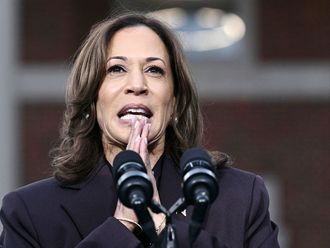Over the past decade, precisely since the 9/11 attacks on the US, political Islam captured the attention of western academia. Experts as well as those who do not claim to be knowledgeable on the topic entered the fray. The debate reflected the two dominant and well-established schools of thought on political Islam in the West. The confrontational school was established by the German sociologist Max Weber. The accommodation school was founded by the French scholar Maxime Rodinson.
The impact of Islam in shaping the social, economic and political conditions in the Islamic world was the key theme in Weber's thesis. In The Protestant Ethic and the Spirit of Capitalism, Weber believed that an explanation of why capitalism emerged and prevailed in one society and not in another is found in the nature of religion.
In this view, Protestantism, and more specifically Calvinism, was the latent power behind the emergence of a capitalist mode of production in western societies. Protestantism, Weber argued, destroyed the notion of intermediary between man and God and made survival in the hereafter rely solely on one's own work.
The result was that rationality replaced fatalism as the religion of the people. Every individual had to work for his own benefit and for his own survival. This pattern of thought laid down the foundations for industrialisation, the creation of a rational law and, hence, the emergence of capitalism in north-western Europe.
Other religions failed to reach the same conclusion because they retained their religious dispositions and failed to develop a rational law determined by individual interest.
Differences
In way of applying this theory to Islam, a rationalised legal system was almost non-existent and a secular law, which could have provided freedom to engage in economic activities that involve future risks, failed to emerge. Islam rejected both individualism and utilitarianism; the two fundamental pillars of rationalism, which laid down the foundations for capitalism.
For Weber, this hindered the emergence of a capitalist mode of production in Muslim societies. Furthermore, Islamic law, unlike Christian law, was a collection of rules and regulations that defined once and for all in terms of absolute standard what is good and what is bad for its followers leaving little room for innovation and creativity. Islamic law is considered final and unalterable rather than evolutionary and adaptable.
Indeed, this argument tends to ignore the negative impact of the West on the process of development in Muslim societies. It does not admit, for example, that until the 19th century the gap between the Islamic world and Europe was almost non-existent.
The modernisation processes in the two domains were advancing head-to-head. What interrupted the process in the Muslim world was a combination of indigenous and exogenous factors. First and foremost, the quest of western colonialism for raw materials, markets, bases and spheres of influence. The quest for material interests required transforming the Muslim world into a field to extract raw materials and marketplace for manufactured goods.
Origins
In addition, the colonial powers, which controlled much of the Arab world, showed little interest in educating the locals and developing national industries. When certain sectors of the economy, such as agriculture and banks, were modernised, they were put in the hands of Europeans or controlled by local minorities. Islam, religion and culture, has nothing to do with the current bad conditions of the Arab and Islamic world.
By contrast, French sociologist Rodinson examined the two main sources of law and legislation in Islam; the Quran and Sunnah of Prophet Mohammad (PBUH) and found no evidence to support the claim that Islam was more antagonistic in its relation to capitalism than any other religion.
Furthermore, Rodinson applied Weber's criteria for capitalist practices to the Muslim world from the dawn of Islam to the 19th century. In addition, he examined the political, economic and social structures of Muslim societies during the medieval era and discovered that a similar form of "late-medieval European capitalism" from which, Weber claimed, "modern capitalism" originated, did exist in "the Muslim world of the Middle Ages".
He argued that "Not only did the Muslim world know a capitalistic sector, but this sector was the most extensive and developed in history before the establishment of the world market created by the western European bourgeoisie, and this did not outstrip it in importance until the sixteenth century".
Rodinson concluded: "If the bourgeoisie did not maintain and develop the strength it possessed in the first centuries AH… if the town did not succeed in acquiring sufficient domination over the countryside; if manufacturing capital did not develop on the same scale as in Europe or Japan … all this was due to factors quite other than the Muslim religion".
These two schools have shaped western thought on Islam for decades and any new debate seems to be mere repetition of their principal arguments.
Dr Marwan Kabalan is the Director of the Damascus Centre for Economic and Political Studies.









